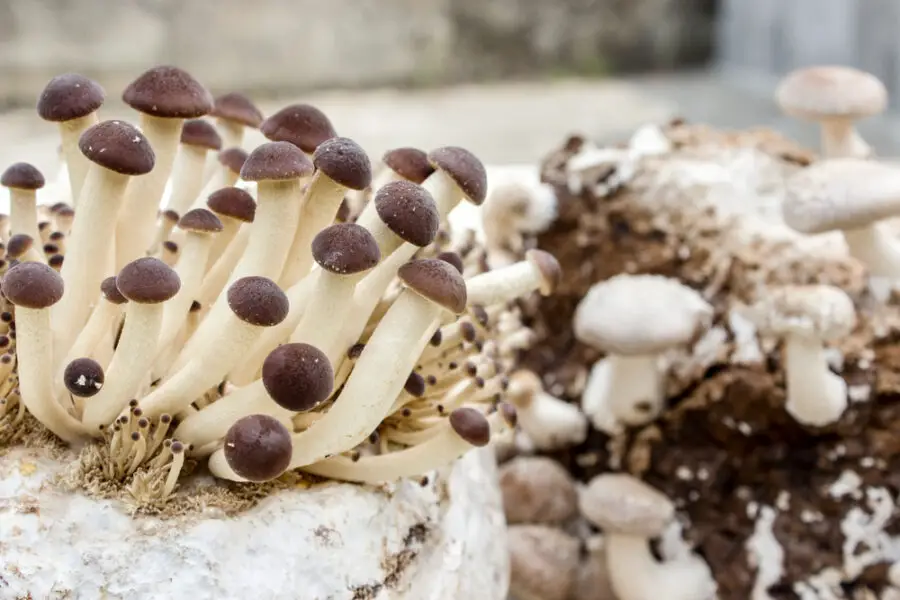Regular consumption of mushrooms is very important in order to maintain a balanced diet and stay healthy. It is recommended that you eat at least 5 mushrooms a day to benefit from their goodness.
Mushrooms play an active role in the prevention of neurological diseases and are also a food source that is recommended by doctors for bone health, lowering cholesterol, and strengthening immunity.
Can Mushrooms Help Keep You Young?
Thanks to the antioxidants they contain, mushrooms purify the body from harmful substances and keep it vigorous and healthy. Mushrooms containing ergothioneine and glutathione antioxidants offer a youthful appearance by minimizing the effects of aging.
Mushrooms eliminate signs of old age such as wrinkles and sagging and pale skin. Mushrooms promote a healthy and dynamic appearance.
Wrinkles and skin problems, which are the biggest symptoms of physiological stress, are often stress-based symptoms. These symptoms can be minimized by the daily consumption of mushrooms.
Can Mushrooms Protect Your Brain As You Age?
Mushrooms are a superfood that can prevent brain deterioration and age-related illnesses. Mushrooms that protect and strengthen brain health should be consumed on a daily basis.
Thanks to the antioxidants they contain, mushrooms protect the brain from diseases like Parkinson’s and Alzheimer’s and are very effective in preventing the development of these diseases in persons already afflicted.
If mushrooms are eaten regularly, they help to keep the dopamine level in the brain in balance and stabilize moods. They also help the regeneration of cells that synthesize dopamine, which also helps to strengthen hand-arm coordination.
Mushrooms help the brain to resist the chemical changes of old age and help people stay more active and strong as they get older.
Can Mushrooms Boost Your Memory?
Mushrooms do not affect memory directly but help support overall brain health. Mushrooms regulate neurological activity in the brain and prevent or slow down memory loss, but they do not necessarily make memory any better overall.
Consuming 8-10 mushrooms per week will protect your memory from age-related deterioration. They help brain cells to renew, and ensure that our neural activity is regulated.
Mushrooms, which prevent events such as memory difficulties and forgetfulness, is a type of food that should be consumed daily.
Are Mushrooms Good For Your Heart?
Thanks to the glutamate ribonucleotides found in mushrooms, they give the body a healthy source of sodium. The main component of sodium protects you from many heart diseases and helps to lower your blood pressure.
Instead of adding salt to your dishes, mix in some mushrooms to get your sodium allowance without the damaging effects of salt.
Mushrooms are a food alternative to red meat, preventing an excessive intake of high calories, fat, and cholesterol.
Fungi in general play an active role in preventing heart rhythm difficulties and heart spasms, they are good for overall heart health.
How to Eat More Mushrooms
Slice the mushrooms thinly and cut them into small pieces and mix them with meat dishes, they are best when cooked with a little oil.
You can add a delicious additional taste to your burgers by adding them to your burger patties. Or you can fry the mushrooms and place them within the patty on top of the burger.
However, frying often is not recommended because of the high level of fat content in oil. Instead, you can cut the mushrooms in half and boil them.
Another method is the sautéing method. You can sauté your mushrooms in a pan with the green pepper, tomato, and onion you chopped before.
When cooking mushrooms, you should pay attention to the use of trans fat as a cooking agent.
Since there is a risk of various heart diseases, especially in excessive consumption of trans fats, it is generally recommended that those who consume mushrooms regularly should boil or bake them
If oil must be used, olive oil is a good alternative. Olive oil regulates digestion, accelerates metabolism, and strengthens bones.
Is Eating Too Many Mushrooms Dangerous?
Mushrooms, which you can easily obtain from supermarkets today, are a very nutritious and healthy food source. So long as the mushroom is edible, it is not dangerous to eat many.
The minerals and vitamins in mushrooms are very important for human health. Regular consumption of mushrooms prevents many heart diseases and neurological issues.
However, excessive consumption of mushrooms can cause stomach discomfort in terms of digestion. Mushrooms are not very dense and you would need to eat a lot before stomach upsets occur.
What Happens to Your Body If You Eat Mushrooms Every Day?
Mushrooms are a source of selenium, an antioxidant that plays an important role in keeping the body strong and healthy.
Selenium can protect you from diseases such as prostate, colon, and lung cancer. When mushrooms are eaten regularly, they eliminate many cancer risks.
Mushrooms are also very rich in potassium. Potassium, a mineral that plays an important role in balancing the amount of fluid in the body, is essential for regulating heart, muscle, and nerve functions.
If you experience various muscle pains while exercising or after exercising, increasing your mushroom intake will ease your discomfort.
When potassium intake continues on a regular basis, cramps, muscle aches, and fatigue symptoms will disappear over time.
Do Mushrooms Boost Immunity?
According to a study conducted in the Journal of the American College of Nutrition, cooked mushrooms strengthen the immune system.
Research suggests that Shiitake mushrooms are an especially good food source for the immune system.
Researchers gave volunteers 3-ounce servings of Shiitake mushrooms every day for 3 weeks. As a result of the research, an increase in immunity was observed in 70% of the participants, and it was reported that the participants felt much more healthy and well at the end of the experiment.
What Is Considered a Serving of Mushrooms?
One serving of mushrooms is around 15 small-button mushrooms. Less if the mushroom is larger than this.
This equates to around 1 cup or a handful of mushrooms. If your mushroom is large, around 3 – 4 slices are considered a serving.


